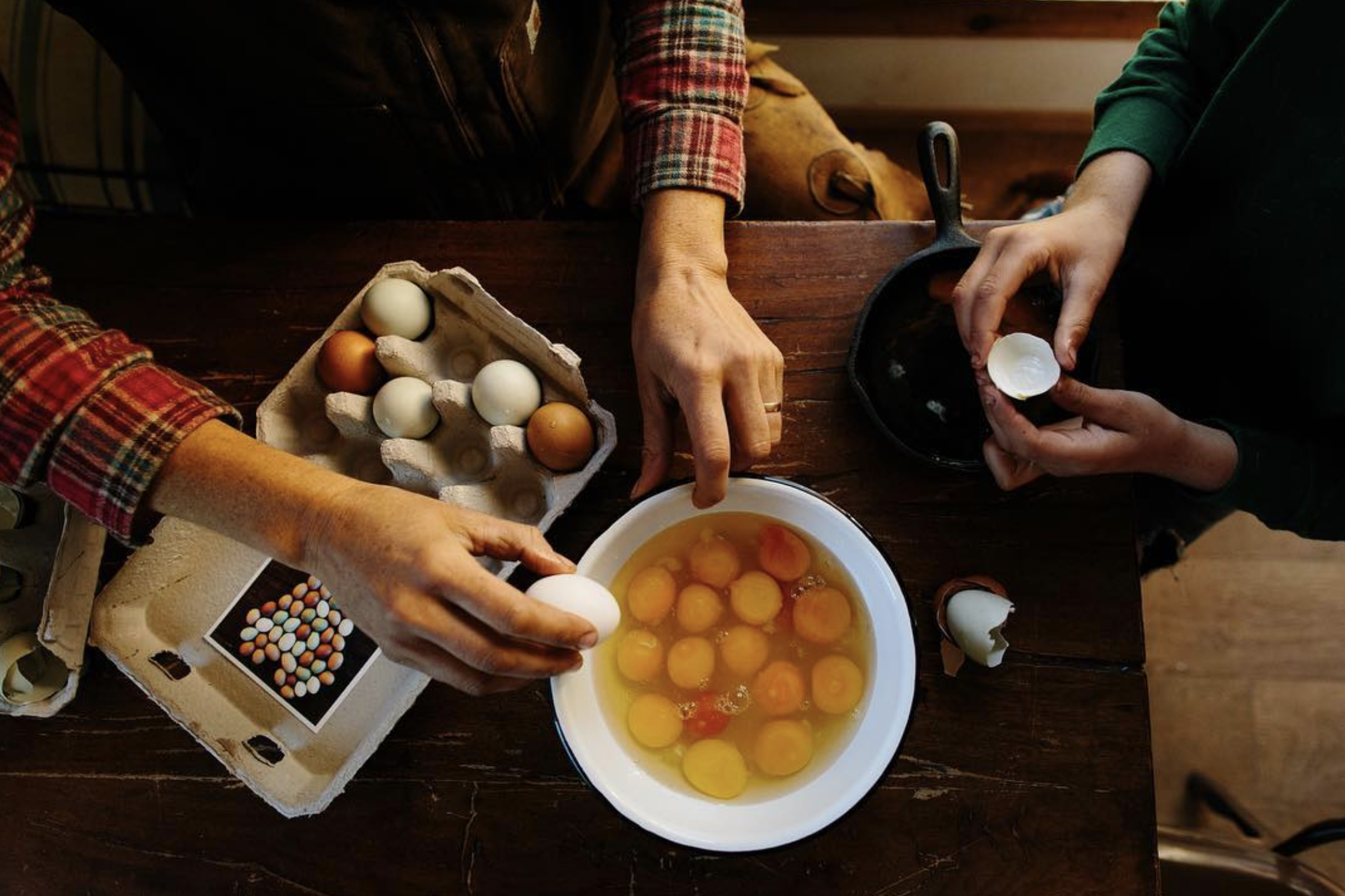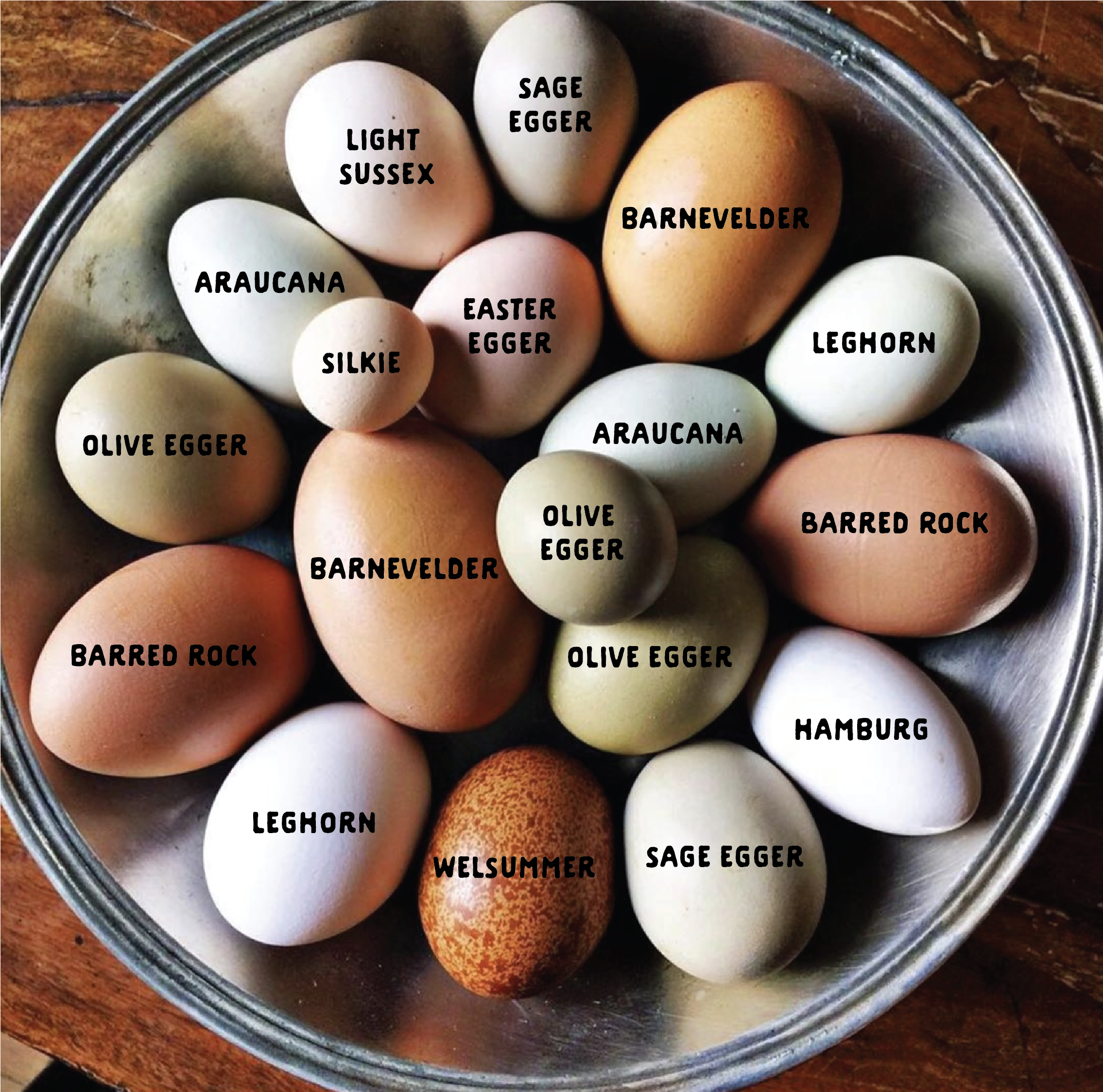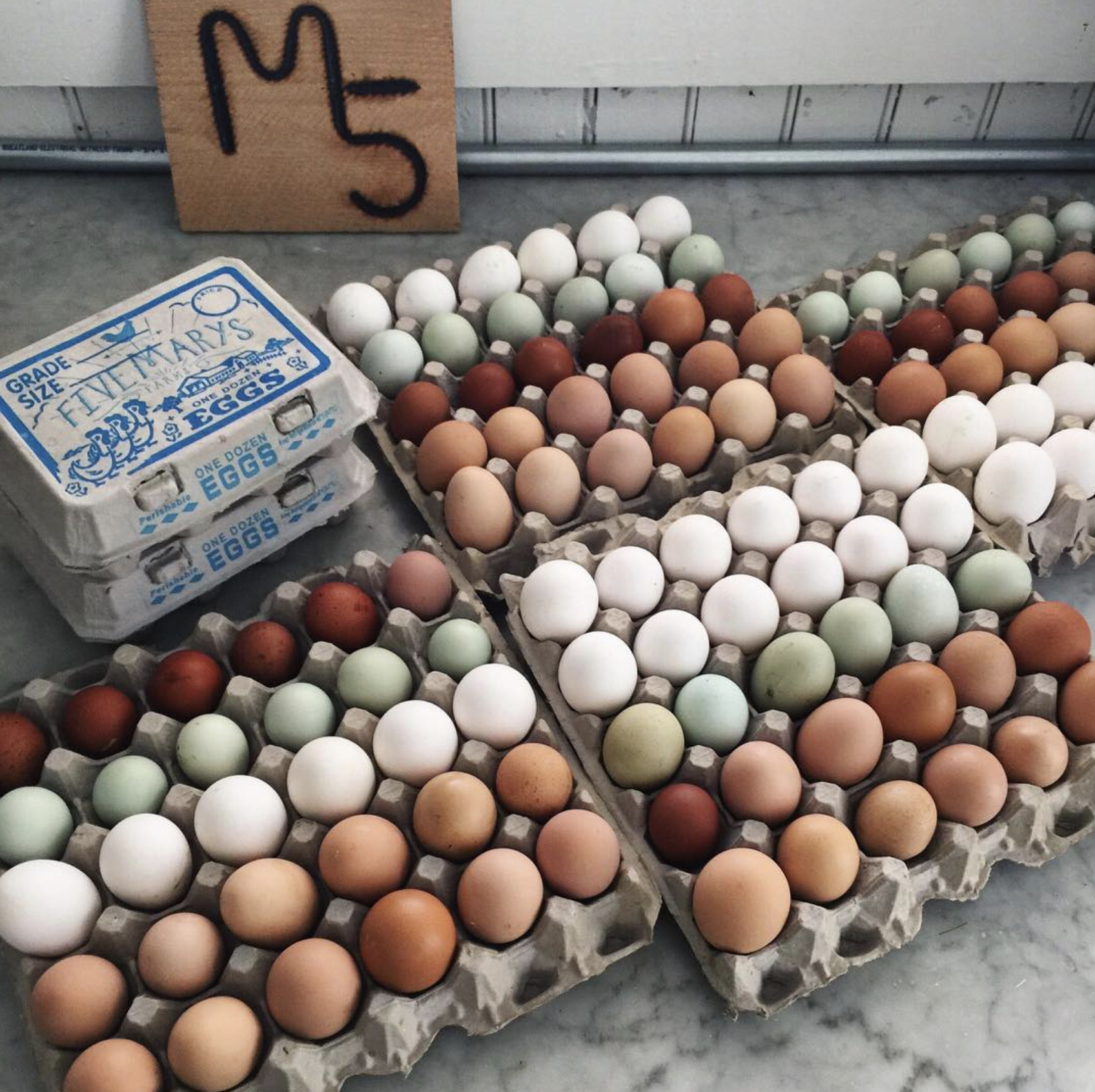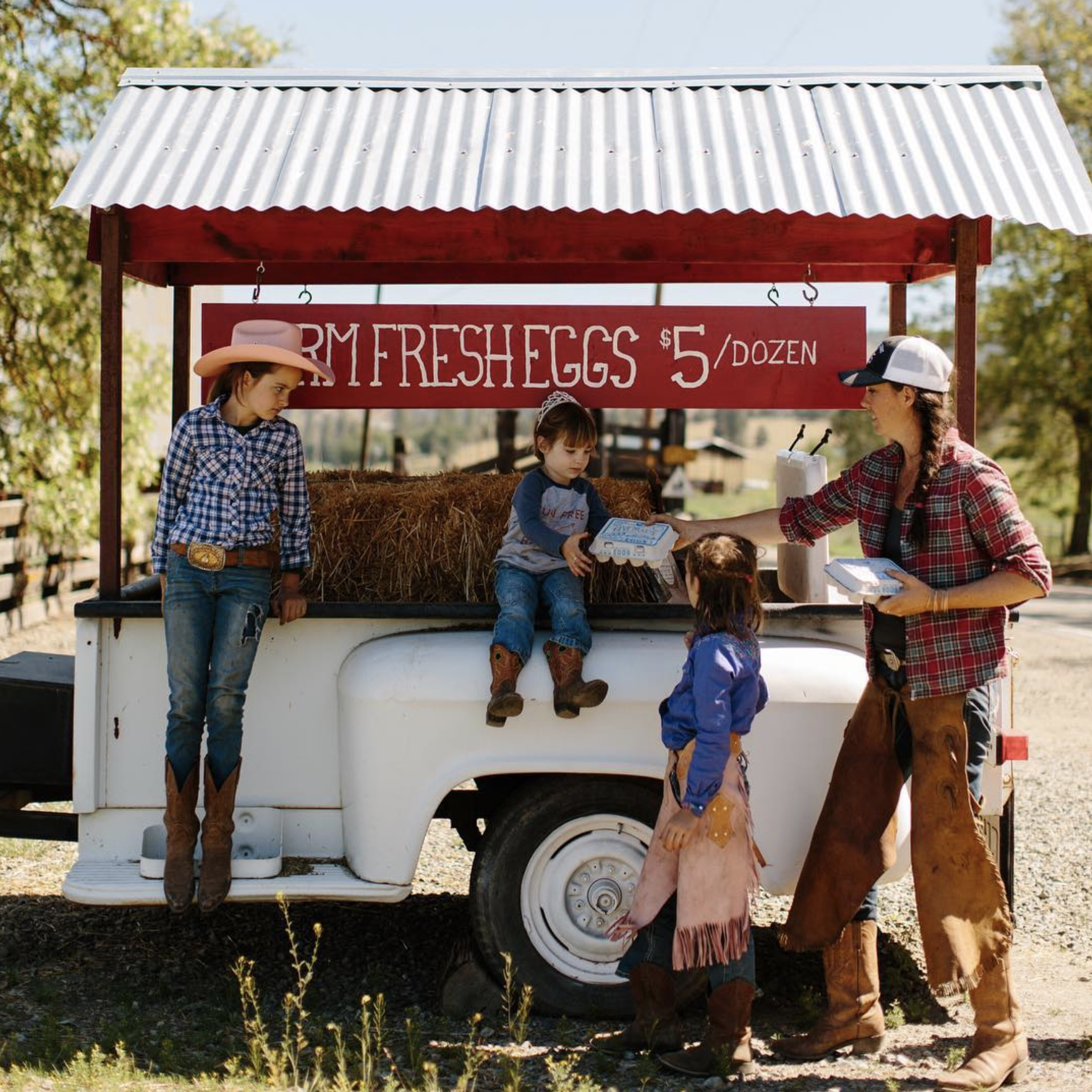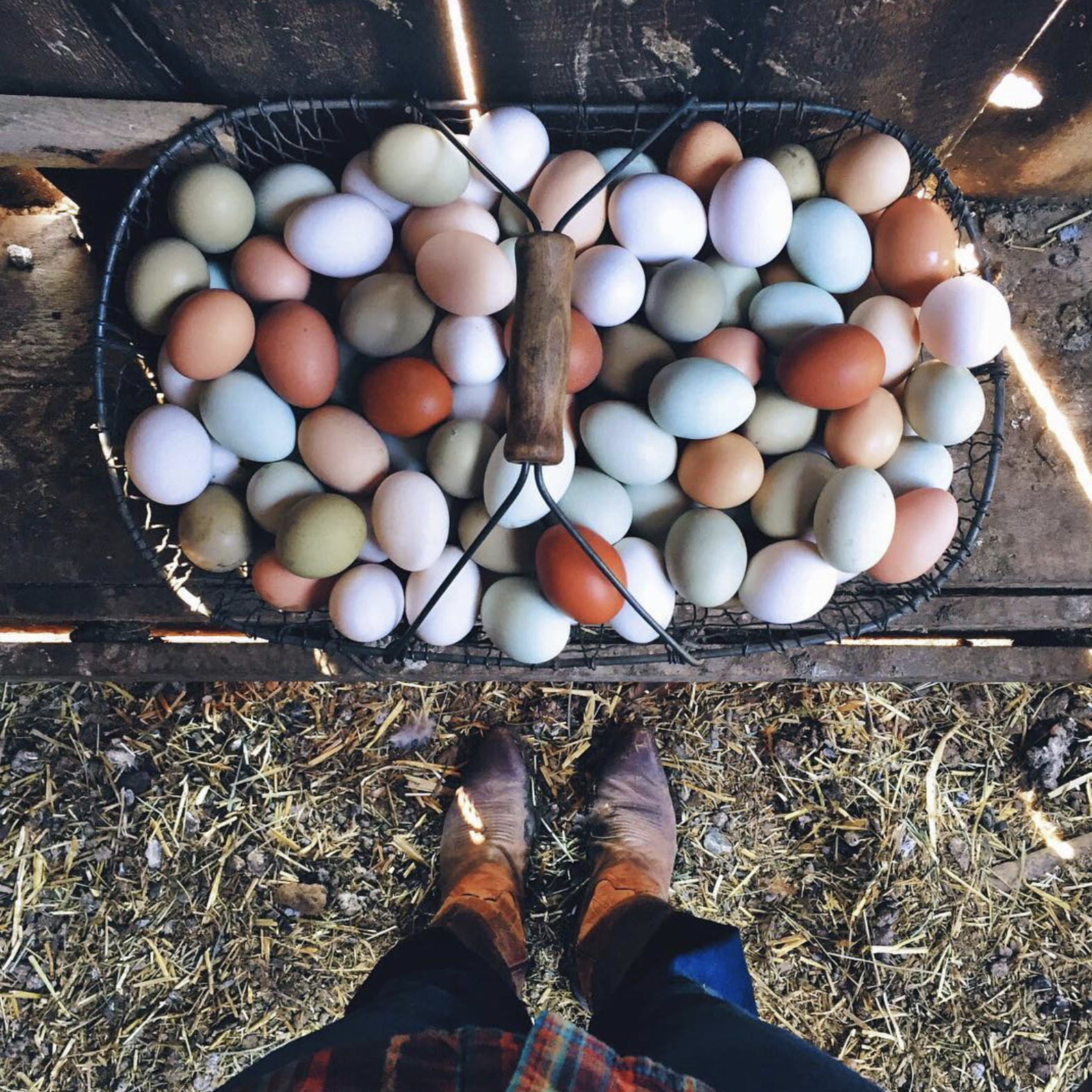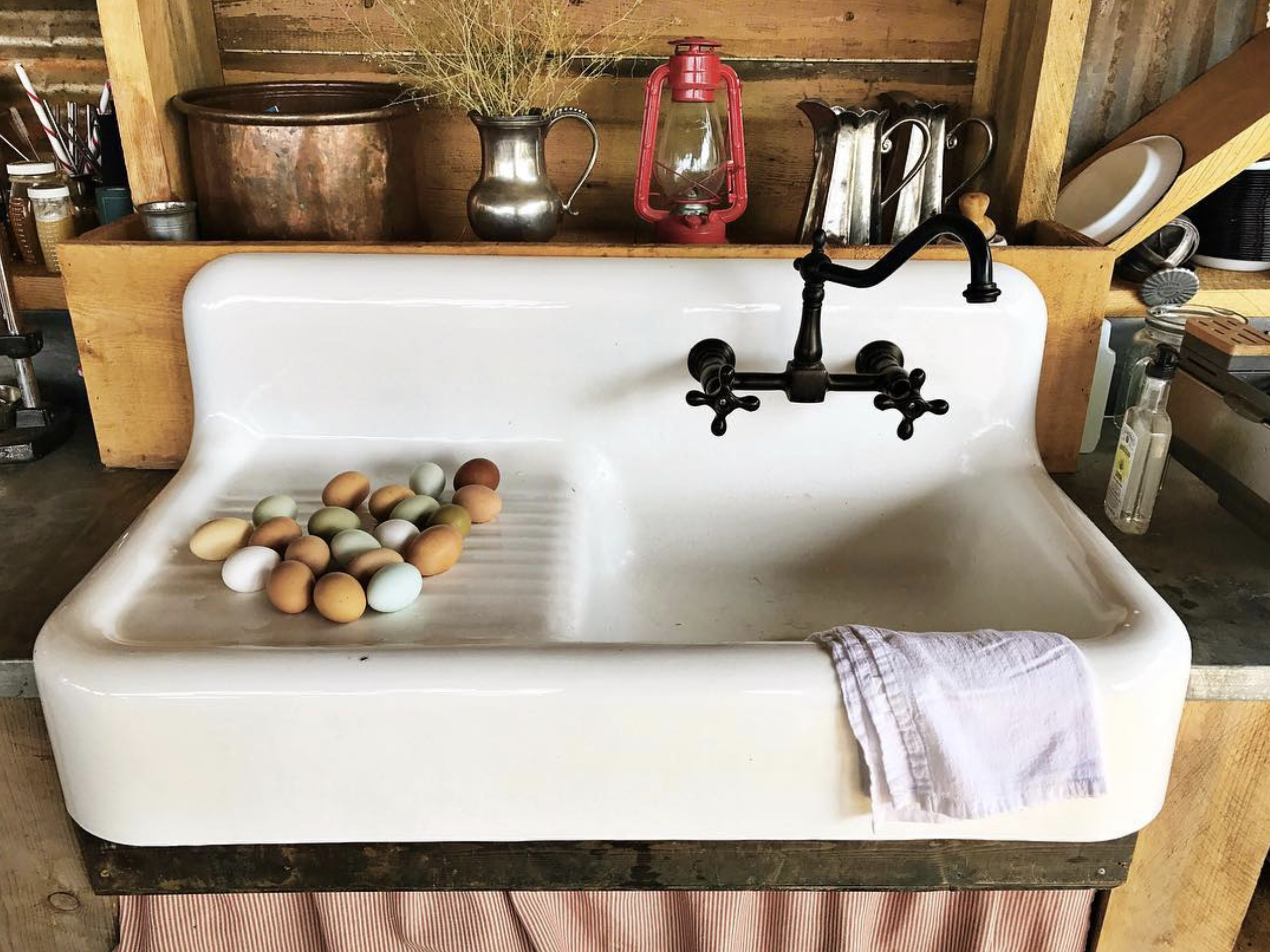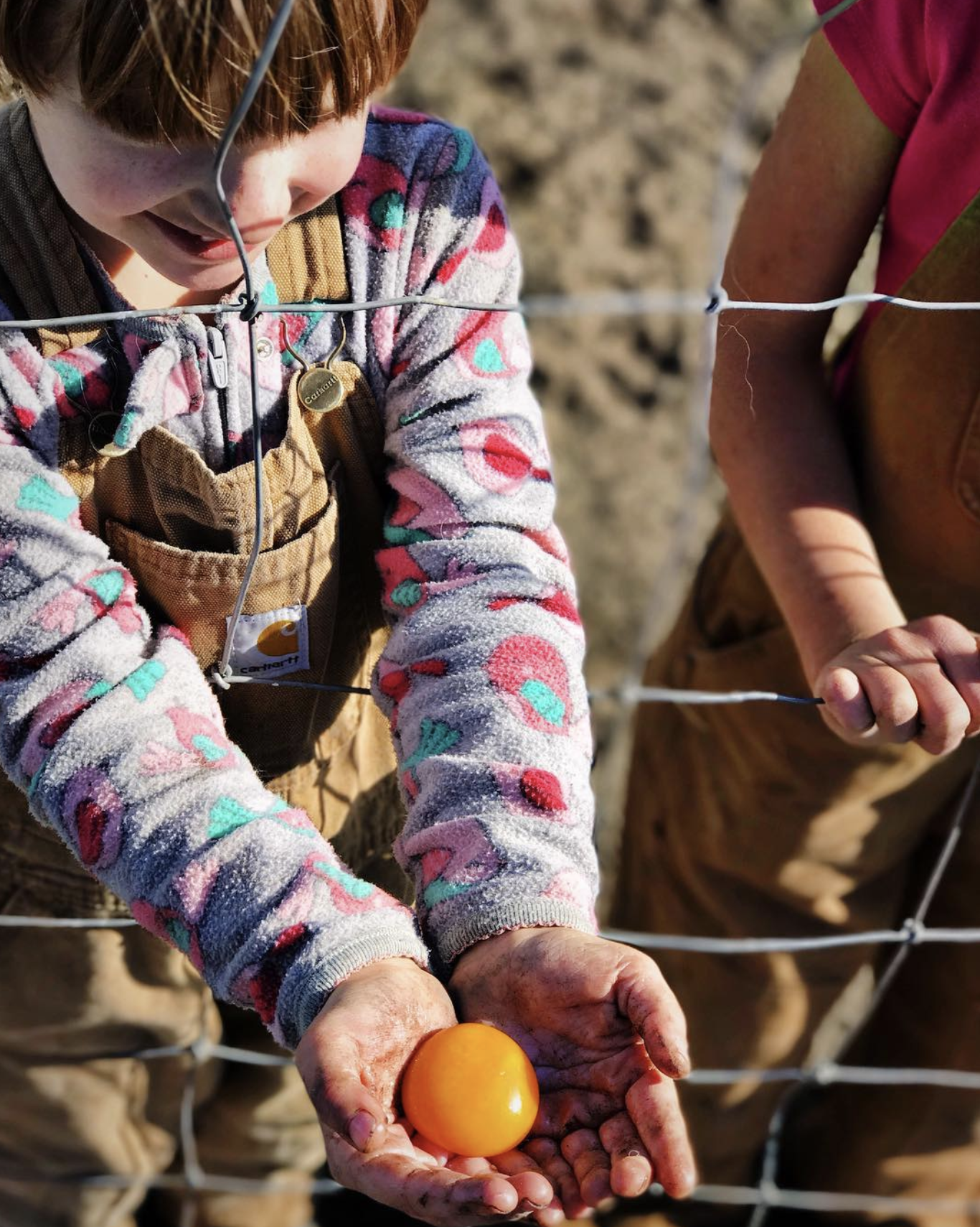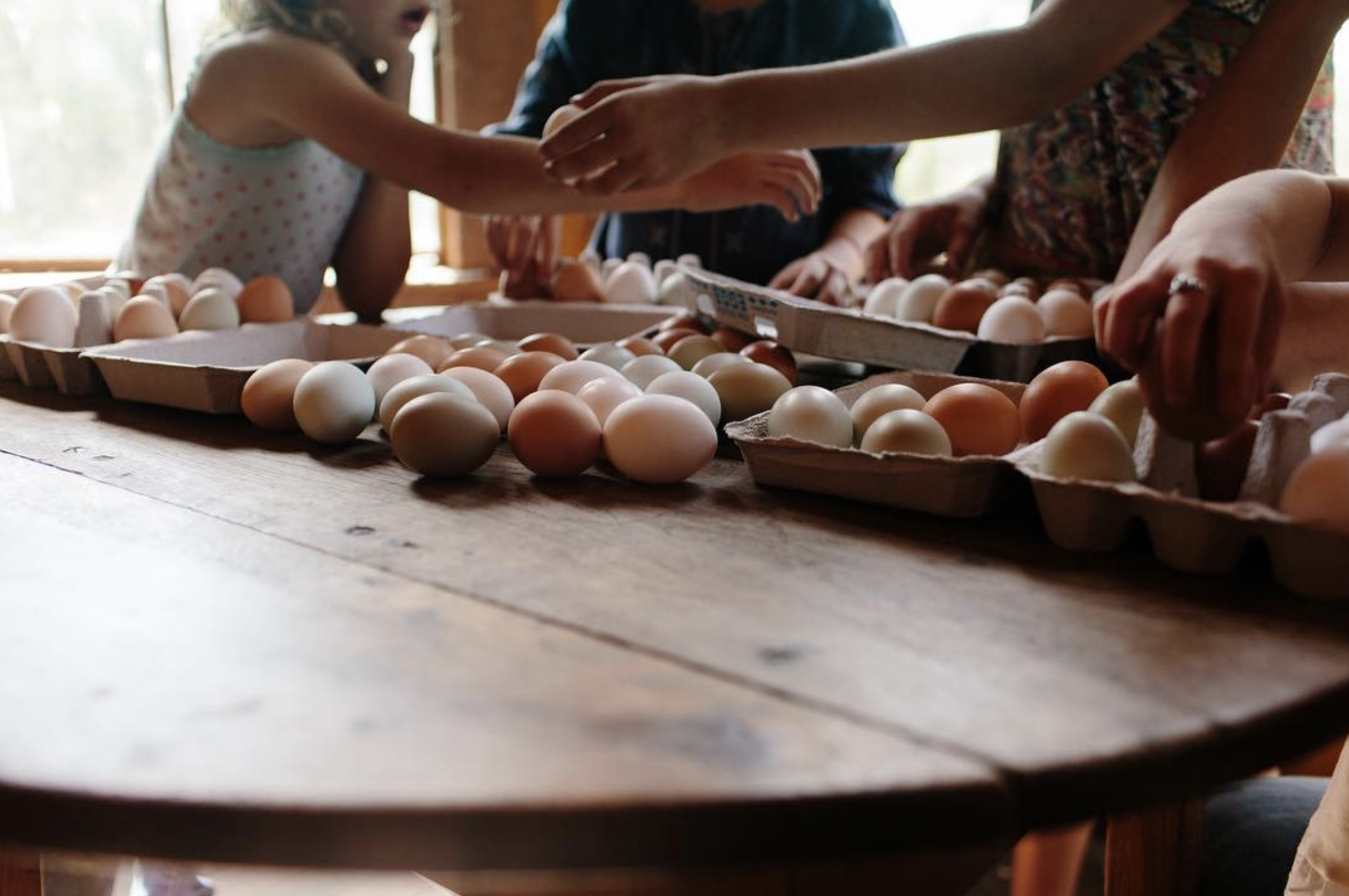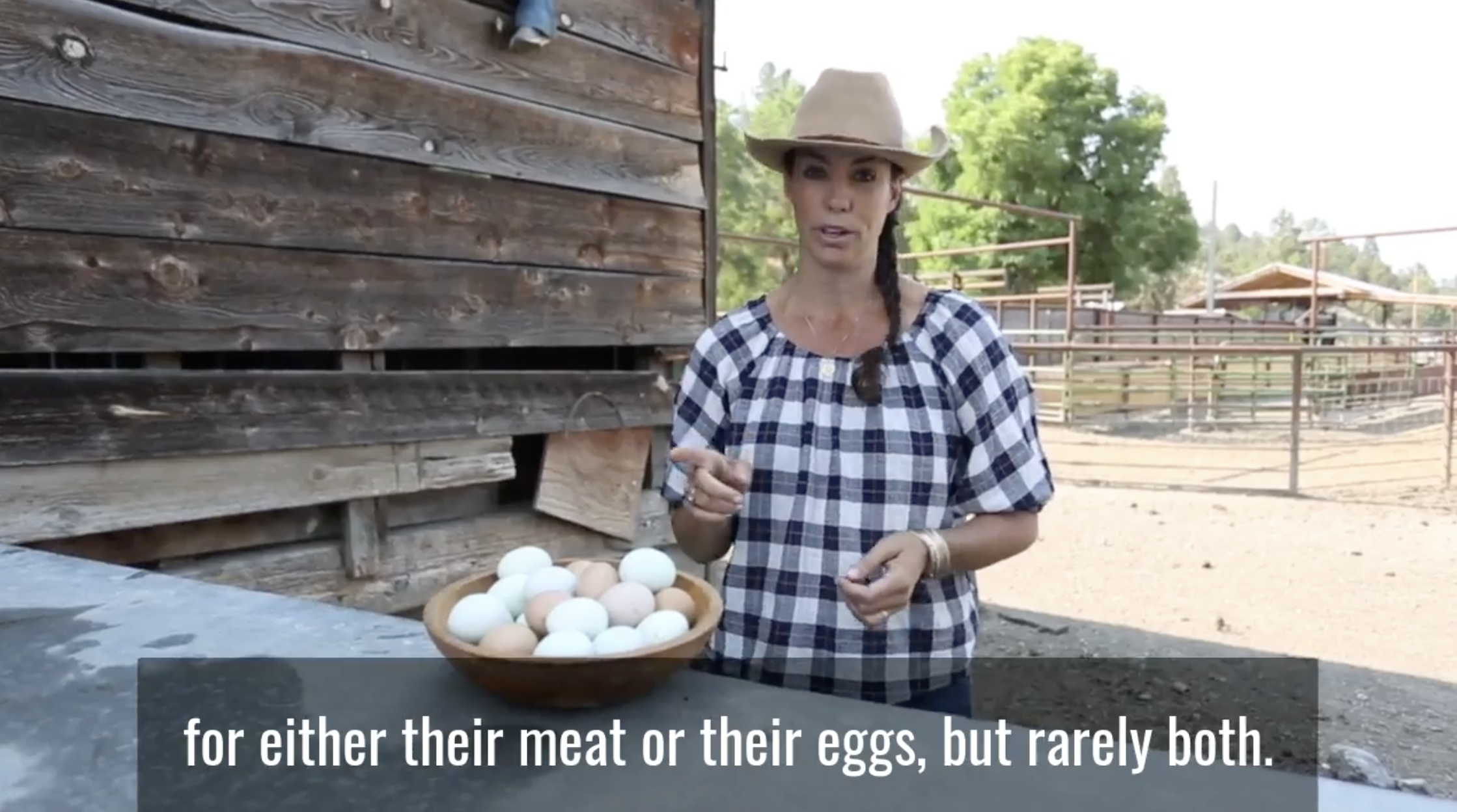All About Eggs
It’s October here on the ranch, one of the most beautiful times of the year. The morning air is fresh and crisp, dusk starts to creep in early, and we begin stocking up on firewood for the cozy winter nights around the corner! During the spring and summer months our chickens are busy laying eggs, but when the daylight starts to decrease, it signals to the hens that it’s time to rest.
During this time of year, egg production dwindles as chickens begin a process called “molting.”
This is when they lose their feathers and their energy is used for regrowth. You can use artificial lighting in your chicken coop to mimic sunlight and encourage continuous egg production, but it’s important to give their bodies this natural season of rest.
Chicken Breeds & Egg Colors
What makes the eggs different colors? That is a question we get asked QUITE often!
Some people think it depends on their diet or the seasons…. but,
The color of a chicken egg depends on the breed of chicken that lays the egg.
Each breed lays different color eggs and will lay that color egg it’s whole life. Sometimes the shade or darkness of the color can change with diet - but a chicken will always lay the same color egg.
One way to tell what color eggs a chicken will lay is by looking at the color of her earlobes!
If the earlobe is white, the egg will most likely be white. If the earlobe is red or dark in color, there is a good chance that the eggs will be brown. The Araucana breed of chicken has pale green or blue earlobes, which results in eggs of a similar shade.
Some colors like Easter Eggers and Sage or Olive Eggers are the result of F1 and F2 generation cross breeds. When you cross a brown egg laying chicken with a blue egg laying chicken - the offspring will lay green eggs. If you take that green egg layer and cross breed it with a dark brown layer - you’ll get the beautiful dark green Olive Eggers. Crossing with a blue egg layer will give you the Sage Egger.
Different chicken breeds lay different colored eggs. These are some of the eggs collected at Five Marys and the breed in which they came from.
Color Consistency
Egg colors do not change, meaning if a hen lays a blue egg, she will always lay blue eggs. The only color variation you may find is in the pigmentation. For example, a brown egg layer’s first eggs may be light in color and darken throughout the next handful of eggs that she lays. It’s possible to cross breed chickens to create many new and interesting colored eggs. Our hens on the ranch are free range and breed naturally with the roosters, so we end up with some pretty unique colors!
Size
You’ll notice in the picture above that the eggs are very different sizes. Egg size is dependent upon many factors, such as diet and breed, but the main factor is age. Chickens start laying eggs around 16-24 weeks old and the first egg that they lay will be small. With each egg that hen lays, the eggs will gradually increase in size. Typically, eggs are considered large by the time the hens are 40 weeks old.
Farm Fresh Eggs
Hens will lay eggs regardless of if there are roosters around. Roosters will fertilize the eggs, but an infertile egg is perfectly safe to eat. The only difference is that an infertile egg will never develop into a chick.
If you do have roosters and hope to raise baby chicks, go ahead and leave the eggs in the coop… the hens will know just what to do to take care of them on their own!
If you plan to collect fresh eggs for eating, be sure to collect about once a day or every other day.
A hen needs to nest on her egg for 72 hours (called a “broody” hen) before the yolk starts to develop into an embryo. So, if you leave eggs in the coop for several days, there is a good chance that they will become inedible. There’s nothing worse than a spoiled egg in the mix when you’re back in the kitchen!
Testing Your Eggs for Freshness
When you have your eggs collected and want to ensure that they are fresh, there is a simple test that you can do with just a bit of water! Fill a glass or small bucket with water and place an egg in it.
If the egg sinks, especially on its side… it’s fresh! If the egg sinks but stands on its side, it will be perfect to hard boil and will be easy to peel.
If the egg floats, that is a strong indicator that it has gone bad and should not be eaten. Rotten eggs also feel a bit lighter than fresh eggs because of the air that passes through the permeable shell.
Washing Your Eggs
When the eggs you’ve collected from the coop come out clean, you don’t need to worry about washing them off.
Eggs have a natural coating called a “bloom,” which keeps bacteria from entering through the shell.
The bloom is slightly wet and glossy, but dries almost instantly. Depending on the temperature and humidity of your kitchen, you can potentially leave those eggs on the counter for several weeks. Sometimes, when you collect eggs from the coop you’ll find a few that are dirty and you’ll want to wash them off. We just use warm water and a little bit of soap to gently wipe them clean. When you do this, you’ll need to refrigerate them afterwards, since they will have lost their natural antibacterial properties.
Yolks
When you compare the yolks of a farm fresh egg to one that you may buy at the grocery store, you’ll notice a big difference in their yolks.
Our chickens on the ranch wander around foraging for grains, grubs, scraps, grass, bugs, and alfalfa that the cattle may have left behind.
Alfalfa contains a beta-carotene that helps give the yolks a vibrant orange color!
The fresher the egg - the more bouncy and tall the yolk will stand. As the eggs get older, the yolks start to flatten.
Now, it’s time to eat!
Here’s a link to our M5 Camp Eggs recipe, perfect for these fall mornings…
Want to learn more? Check out our Ranch School lesson…
“All About Chickens!”
Learn all about the most common farm animal around and its prehistoric roots! We will teach you all about their anatomy, all about eggs, and how to raise your own chickens. There is so much fun learning for all ages in our All About Chickens workshop….
Included in this workshop:
"All About Chickens" Video Lesson
"How to Make Scrambled Eggs - with Tess!" Video Lesson
"Bringing Home Baby Chicks" Video Lesson
"Feed Store Supplies for Chicks" Video Lesson
Recordings of 2 Live "Campfire Chats" meeting our baby chicks
+ PLUS
Lesson Quiz
Chicken Terms Crossword Puzzle
A to Z Research Project
Chicken Coloring Pages
Raising Chickens Entrepreneur Worksheet
Chickens Book List
Read Aloud Story
And if you are selling your own eggs - we love these cute pre-printed cartons on Amazon!
We get the vintage style cartons at www.eggcartons.com in bulk

